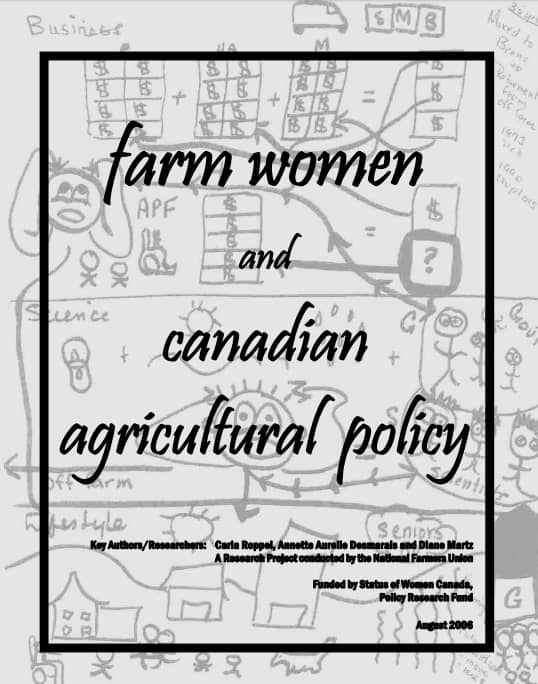While women play a critical role in the day-to-day operation of Canadian farms, there has been no explicit effort to identify their policy needs or their vision of an inclusive Canadian agricultural policy. This reality contradicts the Canadian government’s commitment to achieving gender equality at “all levels of decision-making,” as outlined in a document entitled “Setting the Stage for the Next Century: the Federal Plan for Gender Equality.” Objective 6 of that plan states that the federal government aims to “incorporate women’s perspectives in governance,” and that
[t]o achieve gender equality, the social arrangements that govern the relationship between men and women will have to change to give equal value to the different roles they play, as parents, as workers, as elected officials and others; to foster equal partnership in the decision-making process; and to build a just and equitable society (p. 14).
Moreover, in her recent assessment of existing research on gender, agriculture and international trade, Angeles (2002, 37) identified an important gap in the literature: little has been written on just how the lives of Canadian farming families and rural women are affected by trade liberalization and economic restructuring. This is precisely the void that the Farm Women and Canadian Agricultural Policy research project aimed to fill.
Read the summary report.
Read the complete report.

